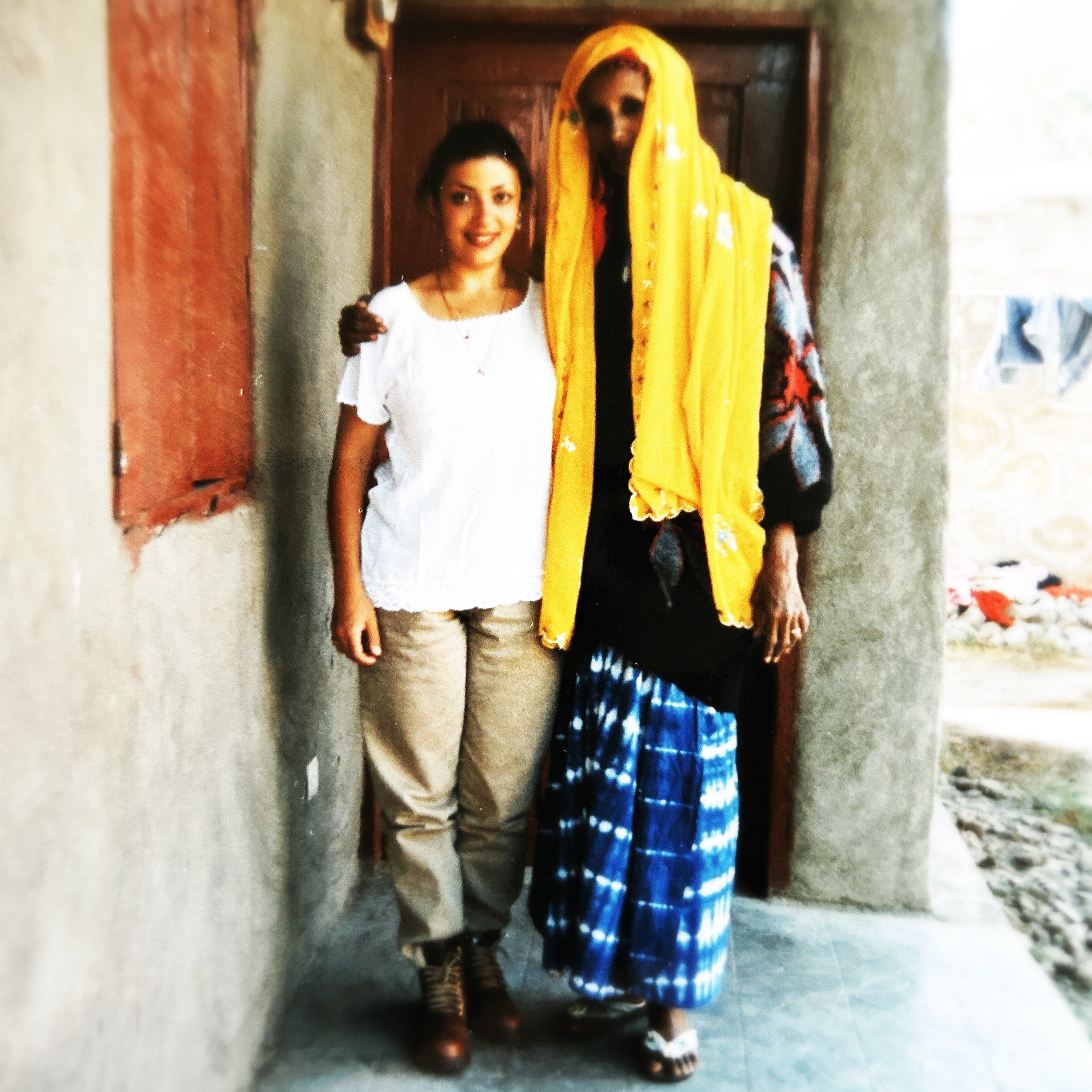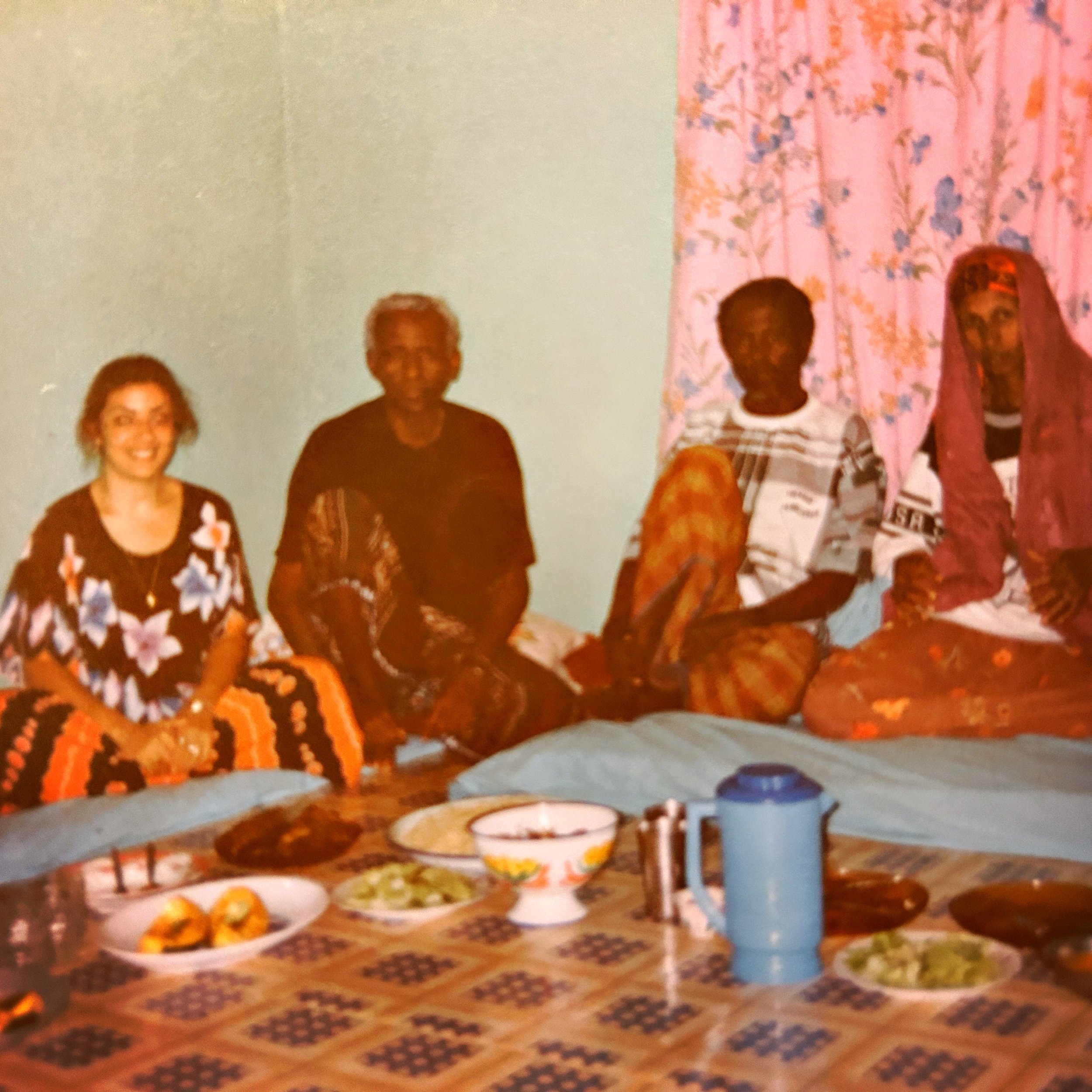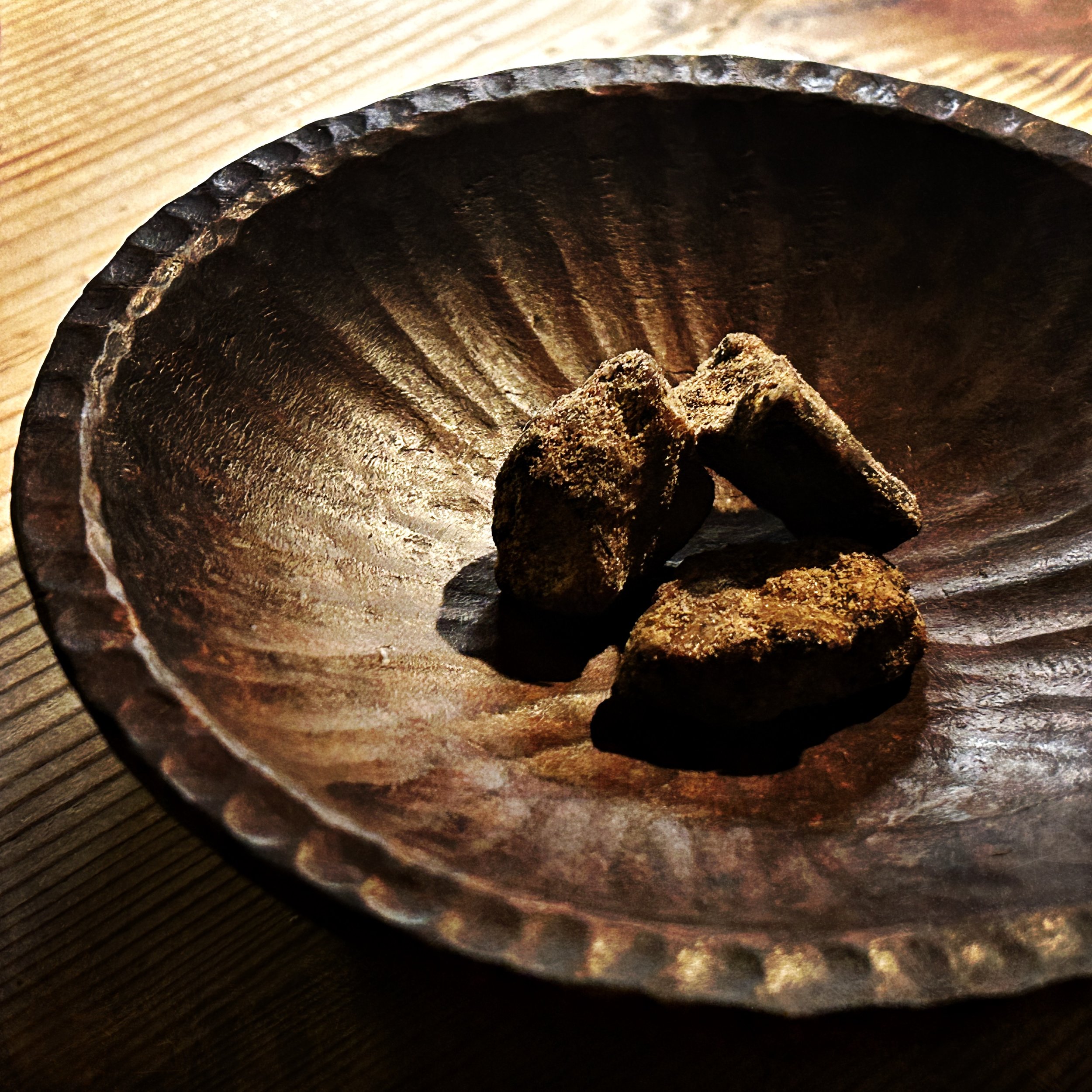BURNING
An encounter with scents in Nazareth, Ethiopia, uunsi, a Somali incense mixture, and a most magical woman.
‘You still have this? Incredible,’ my sister said, when she caught me in the act of organizing my apothecary and labelling ancient pharmacy bottles, some of them as old as a century.
Maybe I have a thing for old stuff and what I get to keep in a bottle that’s even older than what you’d expect. What my sister was referring to is incense that I brought with me from Ethiopia 29 years ago. Since I am a person who burns all sorts of things all the time for the sheer pleasure of my nose, this is indeed, incredible, especially since this particular kind of incense is most precious to me. Let me share a story about it.
In December 1994, exactly 29 years ago, I visited Ethiopia, not as a tourist, but rather as part of a personal charity project. On my trip I had the great privilege to meet a Somali family that had just fled Somalia due to the civil war and was now stationed in none other than the city of Nazareth. Nine people whom I regarded as family lived here in poor conditions, but there was one thing they had in abundance: incense.
The women in this family made their own concoction and they gave me a first class introduction to ritual bathing that included a whole lot of fumigation, Somali style. I literally went through the smoke, per-fumum, making me appreciate the uunsi, the precious oud, frankincense, sandalwood, ambergris, and other essential oils that go into this traditional Somali mix.
I brought with me a such a blend that the Somali women made, and it was this blend that my sister referred to, having tried it herself when I first shared it with her, also 29 years ago. Since she saw that I had more than the three pieces left of resin on the plate I was handling, she made a request for one as a Christmas present. I felt a nervous twitch, as this stuff was not the stuff I was willing to part with so easily, having been made just for me in my own presence. Sniffing the incense and marvelling at its strong fragrance, we both agreed that it’s a miracle that the smell not only lasted this long, but was in fact as strong as back then – at least as far as we could remember. I made no promises to my sister though, as to whether I was going to honor her request for some of it…
WHAT’S IN A NAME
For 6 days in a row now I’ve been spending quite some time under the influence, I could say, having my head into all sorts of fumes, and thinking about all the Latin names we give the gifts of the earth. I made new labels for my principal 42 bottles containing different types of resins, from the rare to the more readily available, and I enjoyed the shining lustre of it all, since the bottles benefited greatly from being submitted to my cleansing cloth.
As my nose is ready for new experiments, I ended up shuffling something other than cards: some of the bottles at the back of my cabinet made it to the front row now, while some in the front took a back seat.
THE LOGIC OF THE BIBLICAL MAGI
I was happy with my new arrangement, with the blend between the tones of foreign languages in my ears and the fragrances dispersing through my space, enchanting my nose and bringing me to considering the times when the three Biblical magi travelled to the other Nazareth in Israel in order to bring the gift of myrrh, frankincense, and gold to the new born baby Jesus. I’d say that the magi hit the tone just right. Incense and metal go together, and one is welcome to also ask me about it, since I entertain quite the olfactory obsession with such pairings.
I like to think that my love of perfume started at my birth, having smelled my mother’s own obsession with Paco Rabanne’s famed Calandre, whose magical ingredients got picked up later by Yves Saint Laurent in his Rive Gauche in 1971. This perfume became my all-time favorite, having been used regularly since the 70s. I still have an unopened bottle from the time before it got ‘reconstructed’ in 2003, and my nose still gets sent to heaven every time I spray myself with it – less though in winter, as that is the time for oud. But still. I imagine being asked at the heavenly gate: ‘what’s the secret password?’ and giving this answer: ‘the logic of metallic aldehydes.’
Yet one would never guess that I actually had this very conversation with the Somali women in Ethiopia, as I felt that they could understand just what I meant with getting access to the higher levels of existence through the vehicle of smoke and scent. So much so that I ended up writing a prose poem that I dedicated to this experience and to the woman who enabled my encounter with both the magic of Somali hospitality and the magic of the Horn of Africa’s gifts.
Although part of a book of prose poems and memoirs, you’re welcome to read the short text here below, from The Logician.
Prose poem for Sadiya Hassan Jimale
I walk the streets of Nazareth. Not in Israel, but Ethiopia. It’s the smell walk. Every house burns. It burns frankincense. The fumes surround my white face and make it yellow. The men of Nazareth walk in hosgunti and are good at addressing you literally. “You,” they say all the time. All narratives are told here in the second person. Now I’m convinced that George Perec was here too. “You,” the woman also says, “lift your garment, smell your own body first, and then step into the smoke.”
Autumn is the color of amber, lacrima heliandum is the color of my naked body, but the white incense is the best. “We do what we can,” the Somali woman tells me. “Smell is distinctive in itself, but here, away from home, we make no distinctions.” “Inshallah,” I say, and the wise woman replies in Italian, “In bocca al lupo.” “You smell, now” she says, but the levonah, the white incense, makes me think of Ketav Levonah, the White Torah. Shmuel ben Aharon-Wahli tells us that the white text is the literal text of the Torah. “The White Text is a reading of the scrolls according to the perfect image of which it writes – that being the image of Mashiyach, the complete measurement of Man.”
I burn with the desire to smell, so I stop listening to his going over the Black Text. The text of sin. The black woman instructs me now, and I take her teachings to my heart. I start speaking in Latin, though. My own burning bush addresses nature with beatific boldness: “Tu, Boswellia Sacra, a posse ad esse.” My humble self says, “Mahadsanid.”










